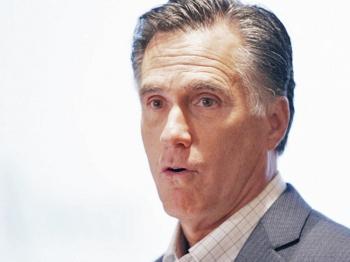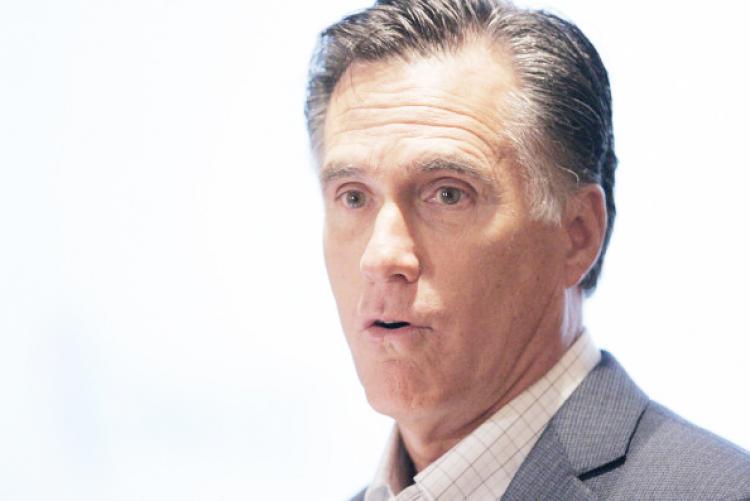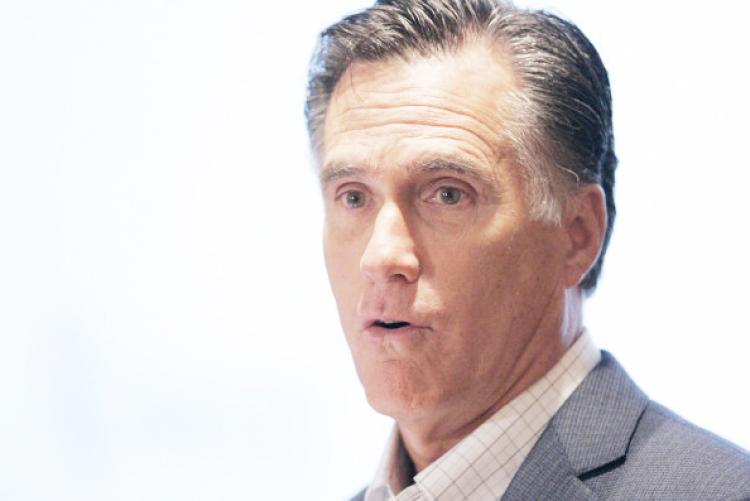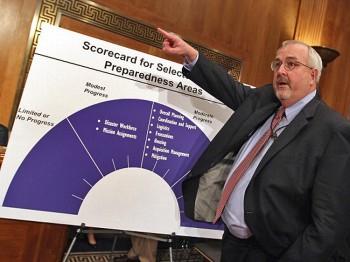Former Massachusetts Gov. Mitt Romney defended his signature universal health care legislation enacted five years ago in Massachusetts but rejected President Obama’s health care reform, the Patient Protection and Affordable Care Act of 2010, that was modeled after his own. In his bid for the 2012 Republican presidential nomination he delivered a major policy speech on health care on May 12 at the University of Michigan, Ann Arbor.
At the heart of the legislation is the mandate that every individual is required to obtain health insurance and this has led Massachusetts to succeed at attaining near universal health coverage.
Romney said that his was “a state solution to a state problem” and federal health care reform should not be one size fits all and that states should have the prerogative to experiment with their own health care solutions without federal dictates. What works for one state may not work for another state. He said the federal legislation would also be a massive federal program that requires a vast bureaucracy with possible cost overruns.
Romney said that, if elected president, he would issue an executive order on his first day in office to provide “ObamaCare waivers” for the 50 states. Then, he said, he would work with Congress to repeal the legislation altogether.
He said the federal tax code discriminates and should be reformed because it favors employer-provided insurance but makes it difficult to buy insurance on one’s own, and that Washington should adopt laws to distribute Medicaid dollars in block grants so states would have more flexibility to manage their own Medicaid. Block grants for Medicaid are part of the Republican budget proposal for 2012.
Conservatives like Tea Party activists want nothing to do with mandates while his mandate-based Massachusetts health care policy is what has the federal reforms followed as a model.
Romney’s new proposal has also left liberals the uneasy feeling that millions will remain uninsured.
The current governor of Massachusetts, Deval Patrick, has said the state’s health care legislation has both saved money and led to nearly universal coverage for residents.
This has not helped Romney’s flip-flop image.
In reaction to Romney’s speech, Patrick accused Romney of playing both sides on health care. “It’s difficult to see how an acknowledged success in Massachusetts can become a presumptive failure nationally,” Patrick said according to the Boston Globe. “But you know, this is more about politics than policy.”
At the heart of the legislation is the mandate that every individual is required to obtain health insurance and this has led Massachusetts to succeed at attaining near universal health coverage.
Romney said that his was “a state solution to a state problem” and federal health care reform should not be one size fits all and that states should have the prerogative to experiment with their own health care solutions without federal dictates. What works for one state may not work for another state. He said the federal legislation would also be a massive federal program that requires a vast bureaucracy with possible cost overruns.
Romney said that, if elected president, he would issue an executive order on his first day in office to provide “ObamaCare waivers” for the 50 states. Then, he said, he would work with Congress to repeal the legislation altogether.
He said the federal tax code discriminates and should be reformed because it favors employer-provided insurance but makes it difficult to buy insurance on one’s own, and that Washington should adopt laws to distribute Medicaid dollars in block grants so states would have more flexibility to manage their own Medicaid. Block grants for Medicaid are part of the Republican budget proposal for 2012.
Conservatives like Tea Party activists want nothing to do with mandates while his mandate-based Massachusetts health care policy is what has the federal reforms followed as a model.
Romney’s new proposal has also left liberals the uneasy feeling that millions will remain uninsured.
The current governor of Massachusetts, Deval Patrick, has said the state’s health care legislation has both saved money and led to nearly universal coverage for residents.
This has not helped Romney’s flip-flop image.
In reaction to Romney’s speech, Patrick accused Romney of playing both sides on health care. “It’s difficult to see how an acknowledged success in Massachusetts can become a presumptive failure nationally,” Patrick said according to the Boston Globe. “But you know, this is more about politics than policy.”





